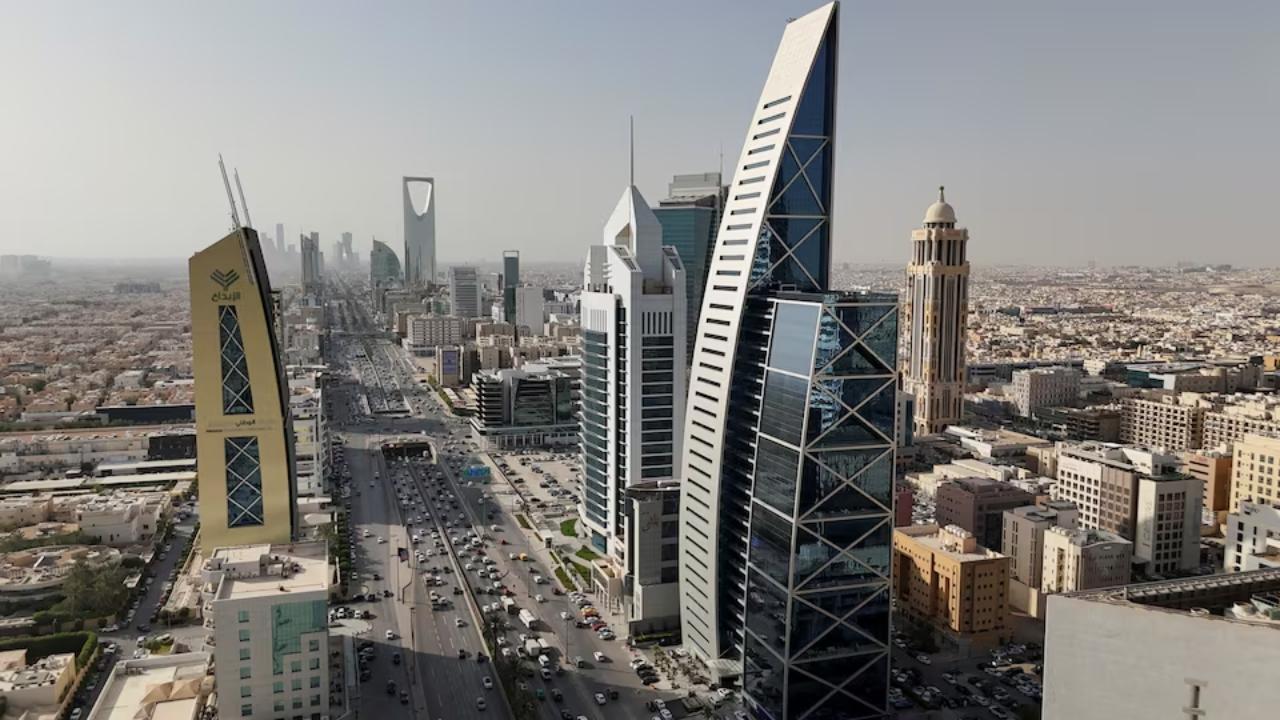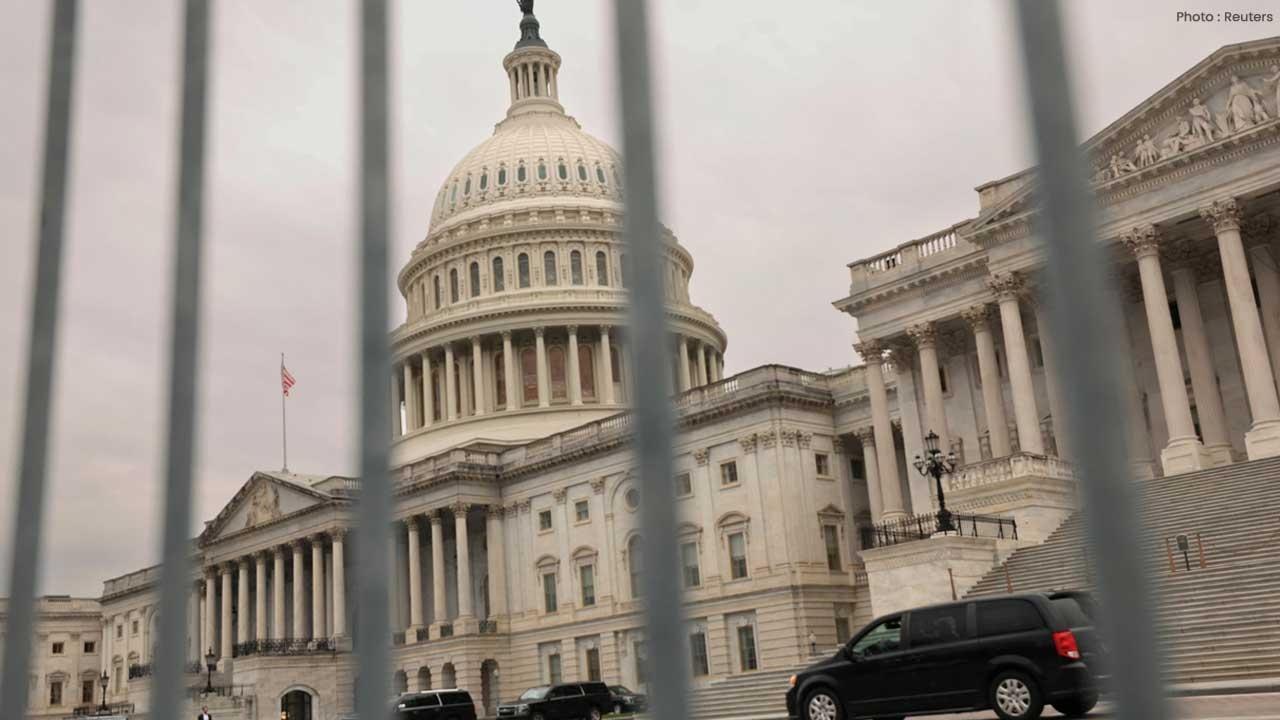
Post by : Monika
Photo: Reuters
In July 2025, businesses in Saudi Arabia’s non-oil private sector continued to grow, even though their speed of production slowed a bit. This sector includes everything from retail shops and construction to travel, services, and manufacturing—basically, everything outside the oil industry.
While oil has always been a big part of the country’s economy, Saudi Arabia has been working hard to develop other areas of business to prepare for the future. This strategy is part of the country’s Vision 2030 plan, which aims to reduce its heavy dependence on oil.
One important way to measure how well businesses are doing is by looking at the Purchasing Managers' Index, or PMI. This is a number that shows whether companies are growing or shrinking. If the PMI is above 50, it means there is growth. If it’s below 50, it means the sector is shrinking. In July 2025, the PMI for Saudi Arabia’s non-oil private sector was 56.3, which is still a strong sign of growth. However, it was a bit lower than the 57.2 recorded in June.
So, while growth continued, it wasn’t as fast as it was the month before. Still, experts say that a PMI over 56 is quite healthy, and it shows that businesses are still doing well overall.
Jobs Keep Growing Fast
One of the best signs of this healthy growth was the number of new jobs being created. Many companies reported that they were hiring more workers in July to keep up with the higher demand. In fact, the pace of job creation stayed near the record levels that were seen in June 2025.
A lot of this hiring came from the rise in new orders, especially from local customers inside Saudi Arabia. As people continued to spend money on goods and services, businesses needed more employees to handle the extra work. Whether it was customer service roles, delivery drivers, factory workers, or sales staff, companies found themselves in need of more hands on deck.
Business owners said they expected this trend to continue in the near future, and many were offering incentives such as extra pay, performance bonuses, or better working conditions to attract and keep employees. This shows that the job market in the non-oil sector is becoming stronger and more competitive.
Slower Production Growth
However, there was a small issue. Even though businesses were hiring more people, their output—which means how much they were producing or delivering—did not grow as quickly. Some company managers said that this was because of stronger competition. With more businesses offering similar services or products, it became harder to stand out and gain new customers.
Others mentioned that foot traffic was lower than usual, meaning that not as many people were visiting physical stores or doing face-to-face shopping. Many people may have been shopping online, or perhaps they were being more careful with their spending. This affected how much some businesses could sell, even if they had enough staff.
Another challenge was in exports. For the first time in nine months, companies reported a drop in export orders. That means they were selling fewer goods to buyers in other countries. This could have been caused by weaker demand abroad, higher prices, shipping delays, or economic problems in some trading partner countries.
Costs and Prices Changing
When it comes to running a business, one of the biggest challenges is handling costs. In July, companies noticed that the prices they had to pay for raw materials—such as metals, wood, fabrics, or other items used in making products—were rising at a slower rate. This was a relief for many, as it helped them manage their input costs, which are all the costs involved in producing goods and services.
However, not all costs were easier to handle. Companies reported that they still had to pay more in wages because of the extra incentives and bonuses they were offering to workers. This caused labour costs to rise. Even though material prices were becoming more stable, wage growth kept the total cost of doing business higher than before.
Because of these changes, some businesses decided to raise the prices of their products or services. But others were careful not to increase prices too much, fearing it could drive customers away.
Looking Ahead – Hopeful, But Cautious
Even with slower output and rising wage costs, many companies still felt hopeful about the future. Most business owners believed that demand would continue to grow, especially in the domestic market. They expected things to improve further once competition settles and customer behavior becomes more predictable.
However, some worries also increased. The overall level of business confidence dipped to its lowest point since July 2024. That means while most people were still feeling positive, they were a bit more careful and cautious than before. Some companies were unsure how much longer the strong hiring could continue, especially if export problems and higher costs remain.
This balance of hope and concern is something many businesses around the world deal with. In Saudi Arabia, where major changes are being made to shift away from oil, keeping the non-oil sector strong and stable is very important.
Why This Matters
Saudi Arabia is going through a major economic change. The country knows that oil won’t last forever, and so it's trying to grow other parts of its economy. That’s why what happens in the non-oil private sector is so important.
If this part of the economy stays strong, it helps create more jobs, attracts foreign investment, and makes the country less dependent on oil.
The news from July 2025 shows that progress is happening. Jobs are being created, demand is high, and most businesses are doing well. Still, challenges like slowing exports and rising costs need to be watched closely. If Saudi Arabia can keep up this balance and support its businesses, it’s likely the country will meet its long-term economic goals.










NBA Friday Recap: Powerhouse Wins for Miami, LA, Milwaukee, and Clippers
Miami, LA Lakers, Milwaukee, and Clippers triumphed in a thrilling NBA Friday, showcasing standout p

Doncic Shines with 49 Points in Lakers' 128-110 Victory over Timberwolves
Luka Doncic dazzles with 49 points as the Lakers secure a 128-110 win against the Timberwolves, show

Kings Triumph Over Jazz 105-104 with Last-Minute Sabonis Effort
The Sacramento Kings edged out the Utah Jazz 105-104, with Domantas Sabonis making the decisive shot

Argentina's Friendly Match Against India Delayed, New Date to be Announced
The friendly match between Argentina and India in Kochi has been postponed due to FIFA approval dela

Rohit and Kohli Conclude ODI Journeys in Australia with a Victory
Rohit Sharma and Virat Kohli bid adieu to Australian ODIs with a final win, forming a 168-run partne

George Russell's Wrestling Mask Antics at Mexican Grand Prix
George Russell donned a wrestling mask to enjoy the Mexican Grand Prix from the stands, providing a